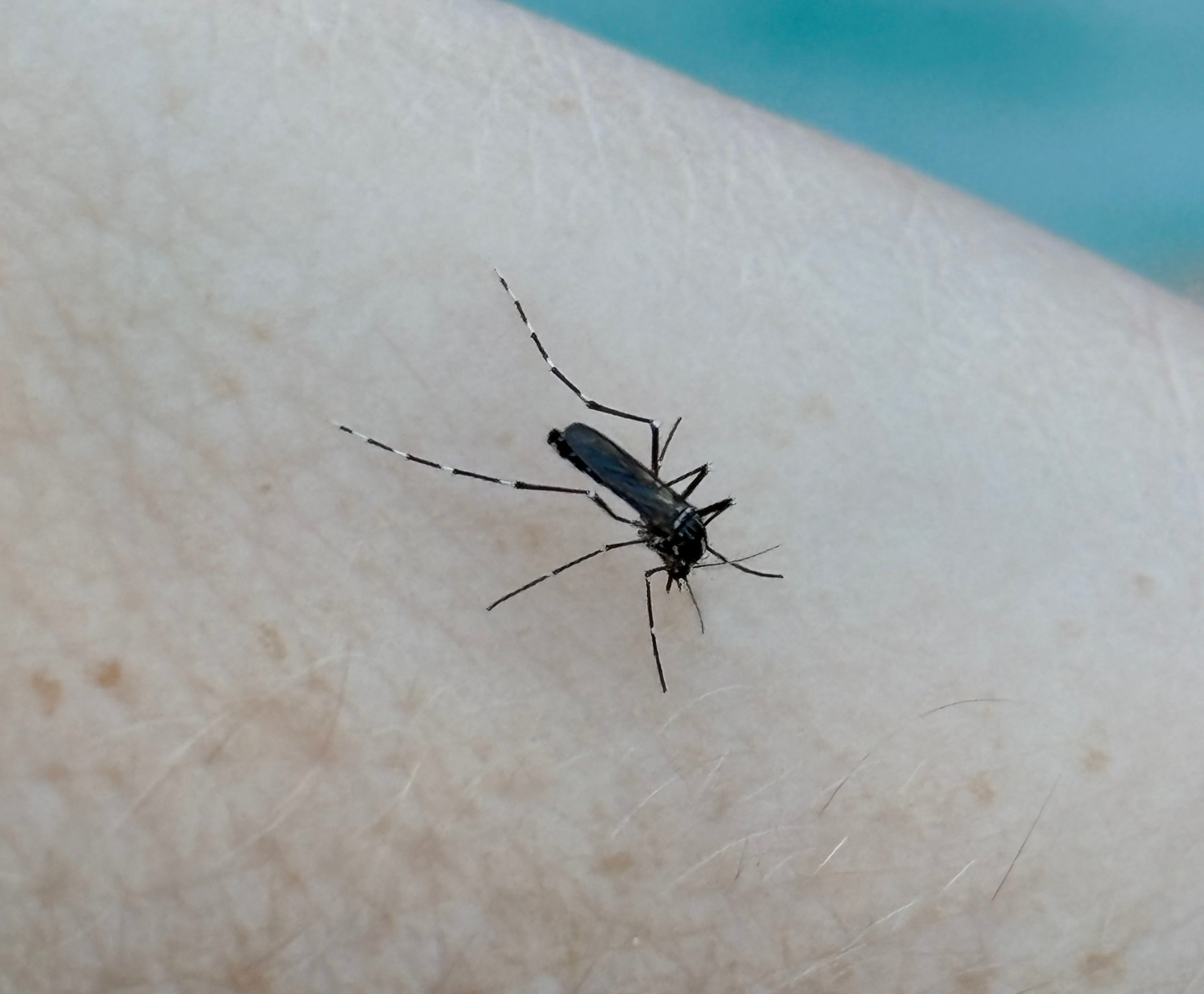News Detail
Noticing More Mosquitoes This Year? You’re Not Alone
Franklin County Residents Urged To Join Fight, Protect Themselves
Planning
July 17, 2025

CHAMBERSBURG, Pa. – Franklin County residents – especially those who live in wooded areas or near bodies of water – are experiencing a higher volume of mosquitoes this year due to a very wet late spring.
Franklin County’s mosquito and tick-borne disease team is working hard to reduce and control mosquito populations and mosquito-borne diseases this summer. Each week staff travel throughout the county, identifying mosquito habitats – like standing water or dense vegetation – that could develop into large-scale mosquito problems. They then work to eliminate the mosquito larval source before it becomes an issue. This can include treating standing water and performing evening truck-mounted sprays, as warranted.
These control methods are not 100% effective at eliminating mosquitos. Only environmental factors can provide prolonged relief. There are several effective ways that Franklin County residents can help improve these environmental factors and combat mosquitoes and the diseases they may carry:
- Check for standing water: Homeowners should check their properties for standing water. Even the smallest bit of water – something as little as a water-filled bottle cap –can breed mosquitoes. Check common items like buckets, flowerpots, bird baths, tarps and old tires and dump any standing water. If a container cannot be dumped, use mosquito dunks or mosquito bits to kill larvae. Dunks and bits can be purchased at any home goods store or many hardware stores.
- Spray vegetation: Homeowners can also spray the vegetation around their homes and yards with a product that kills mosquitoes. Mosquitoes prefer dense vegetation, and using a spray that leaves a residue on vegetation will kill mosquitoes. These spray products can be found at any home improvement or hardware store. Homeowners should refrain from spraying flowering vegetation to avoid killing pollinators.
- Use DEET products for exposed skin: DEET is very effective in repelling mosquitoes. Much like sunscreen, though, DEET products should be reapplied after a certain amount of time, depending on the percentage of DEET in the product.
- Spray permethrin products on clothes: Permethrin products can be used on clothing but not on skin. Clothing should be sprayed and allowed to dry before being worn. The permethrin will work for six weeks or six times run through a washing machine. Always follow the label when using an insecticide. It’s important to note that permethrin-treated clothing will not prevent mosquitoes from biting exposed skin.
- Purchase a Thermacell: A Thermacell is a unit that heats up a pad containing either allethrin or prallethrin. As the pad heats up, it creates a small invisible bubble that surrounds the user. Mosquitoes will not fly into this bubble. As long as the unit is nearby, the user will be protected from mosquitoes.
- Wear appropriate clothing: Long-sleeve shirts and pants can protect against mosquito bites as mosquitoes cannot pierce fabric.
- Adjust outdoor plans: Mosquitoes are most active at dawn and dusk, so residents can avoid mosquitoes by staying indoors at these times.
- Use a fan: Residents can also place an electric fan, turned on to a high setting, near them. Mosquitoes have a difficult time flying in wind.
If a control method is not listed here, it means it is a less effective method compared to those listed. That includes using natural predators like bats, utilizing citronella candles and bracelets, or planting certain types of flowers and plants that claim to repel mosquitoes or attract mosquito-eating insects. These items can help to a certain degree, but they will not provide the type of relief most residents are seeking. Large-scale aerial sprays, while effective at targeting sizeable mosquito-prone areas, are costly and are typically only used as a last resort to reach otherwise inaccessible breeding grounds when West Nile virus is rampant in a specific environment.
Franklin County residents are encouraged to report new mosquito breeding sites and share information about areas of standing water or high mosquito activity so those areas can be surveyed. Please contact Franklin County Mosquito and Tick-Borne Disease Control Specialist Jason Goetz at jgoetz@franklincountypa.gov or 717-753-0776. Each report is reviewed and surveyed, but not all reports warrant a spray. Additional information about Franklin County’s mosquito and tick-borne disease program is available online at www.franklincountypa.gov/mosquito-tick-borne-disease-program.
